- The Dawns Here Are Quiet (1972)
- The Lady with the Dog (1960)
- The Irony of Fate, or Enjoy Your Bath! (1975)
- Office Romance (1977)
- Moscow Does Not Believe in Tears (1980)
- A Cruel Romance (1984)
- The Station Master (1972)
- The Love of Three (1972)
- The Unfinished Piece for Mechanical Piano (1977)
- Autumn Marathon (1979)
This curated collection of Soviet melodramas offers a unique glimpse into the emotional and cultural landscape of the USSR. These films not only showcase the complexities of love and relationships but also reflect the societal norms, historical events, and artistic expressions of the time. They provide an invaluable insight into the Soviet era, appealing to both cinephiles and those interested in historical narratives through the lens of romance.
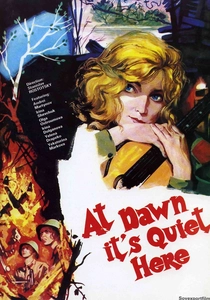
The Dawns Here Are Quiet (1972)
Description: While primarily a war film, it includes a poignant love story between a soldier and a female sniper, set during WWII.
Fact: The film was remade in 2015, showing its lasting impact on Russian cinema.
 Watch Now
Watch Now
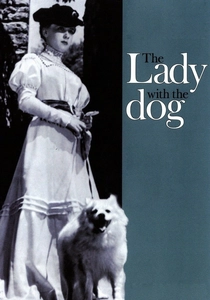
The Lady with the Dog (1960)
Description: An adaptation of Chekhov's short story, this film captures the fleeting nature of an illicit love affair, reflecting on the moral and emotional complexities of relationships.
Fact: The film was one of the first Soviet films to openly deal with adultery.
 30 Days Free
30 Days Free
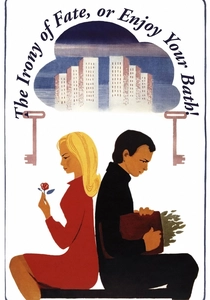
The Irony of Fate, or Enjoy Your Bath! (1975)
Description: A New Year's Eve comedy-drama where a man ends up in the wrong city and apartment, leading to a romantic entanglement. It's a satirical look at Soviet urban planning and the uniformity of living spaces.
Fact: It has become a tradition in Russia to watch this film every New Year's Eve.
 30 Days Free
30 Days Free
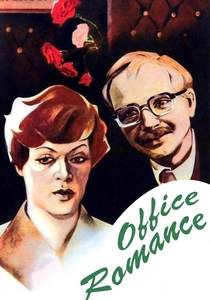
Office Romance (1977)
Description: A comedic take on workplace romance, this film delves into the dynamics of office life and the blossoming relationship between a stern boss and his meek secretary, highlighting the human side of Soviet bureaucracy.
Fact: The film was a massive hit in the USSR, with its catchphrases becoming part of everyday language.
 30 Days Free
30 Days Free
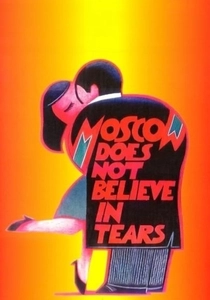
Moscow Does Not Believe in Tears (1980)
Description: This film follows the lives of three women over two decades, exploring themes of love, ambition, and the changing roles of women in Soviet society. It's a poignant depiction of personal growth and the enduring nature of love.
Fact: The film won the Academy Award for Best Foreign Language Film in 1981, becoming one of the most successful Soviet films internationally.
 30 Days Free
30 Days Free
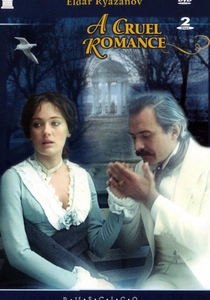
A Cruel Romance (1984)
Description: Based on Alexander Ostrovsky's play, this film explores the life of a wealthy merchant's daughter and her tumultuous love life, reflecting on societal expectations and personal freedom.
Fact: The film's score by Andrei Petrov became very popular, with the song "Song of Parasha" being particularly well-known.
 30 Days Free
30 Days Free

The Station Master (1972)
Description: A touching adaptation of Pushkin's story, it focuses on the tragic love story of a station master and his daughter, set against the backdrop of rural Russia.
Fact: The film was shot in the original locations described by Pushkin, adding authenticity to the setting.
 30 Days Free
30 Days Free

The Love of Three (1972)
Description: This film tells the story of a love triangle set during the Great Patriotic War, showcasing the emotional turmoil and sacrifices of wartime romance.
Fact: The film was one of the first Soviet films to openly discuss the complexities of love during wartime.
 30 Days Free
30 Days Free

The Unfinished Piece for Mechanical Piano (1977)
Description: A Chekhovian drama about a group of people at a country estate, exploring themes of love, art, and the passage of time.
Fact: The film was shot in the same estate where Chekhov wrote many of his plays, enhancing its authenticity.
 30 Days Free
30 Days Free

Autumn Marathon (1979)
Description: A satirical look at a philandering professor whose personal life is in disarray, exploring themes of love, duty, and the midlife crisis.
Fact: The film was one of the last major works of director Georgy Danelia before the Soviet Union's dissolution.
 30 Days Free
30 Days Free









